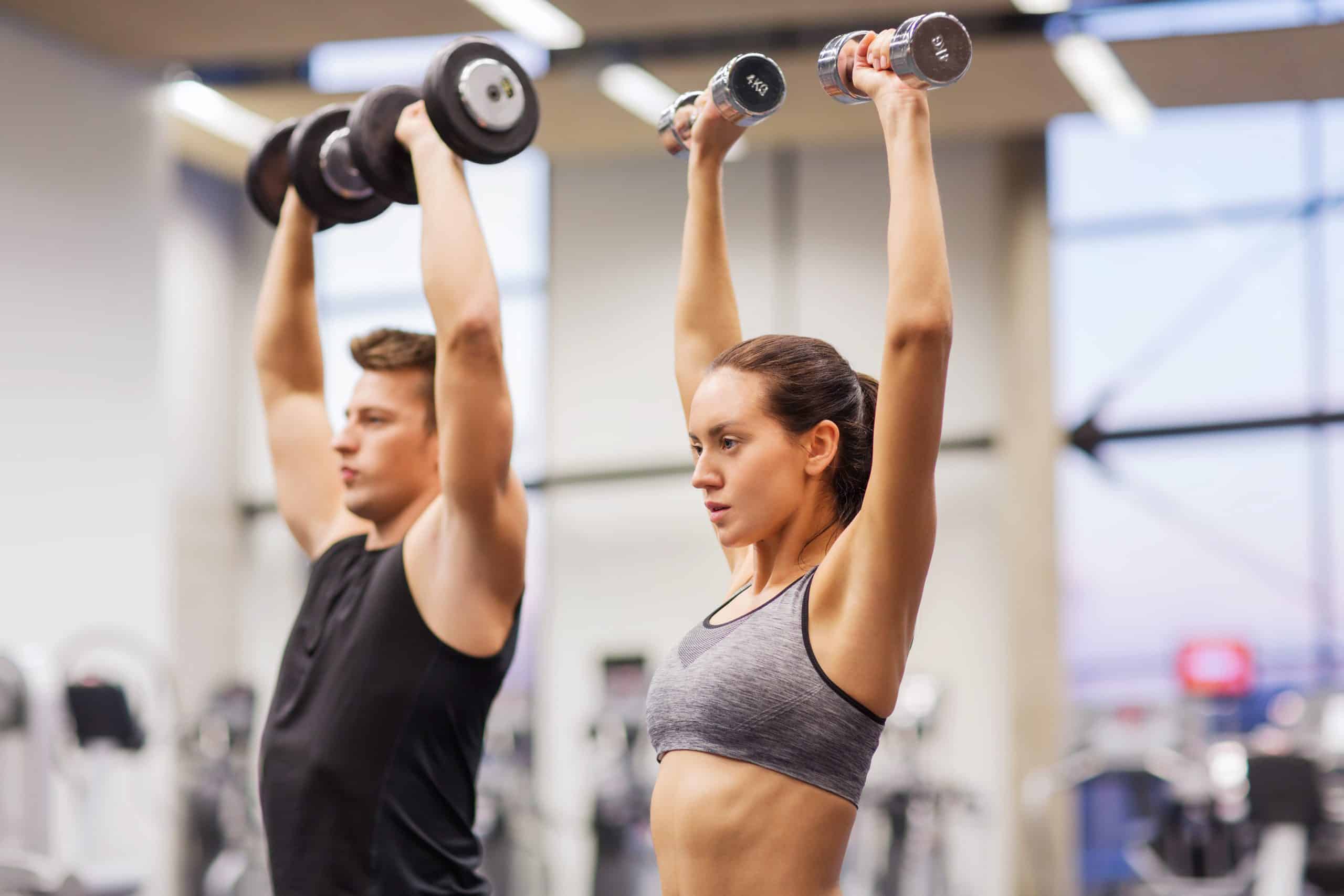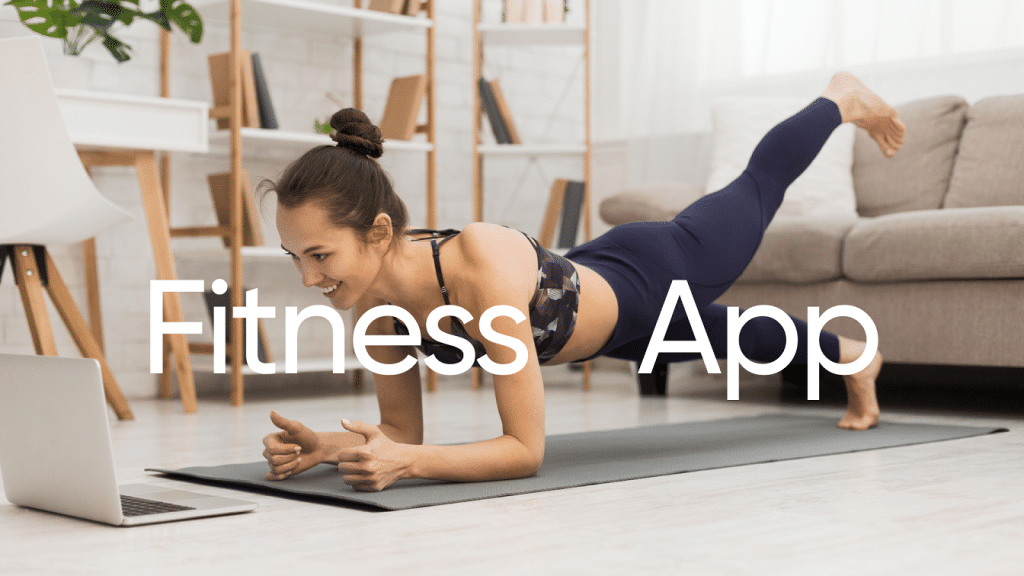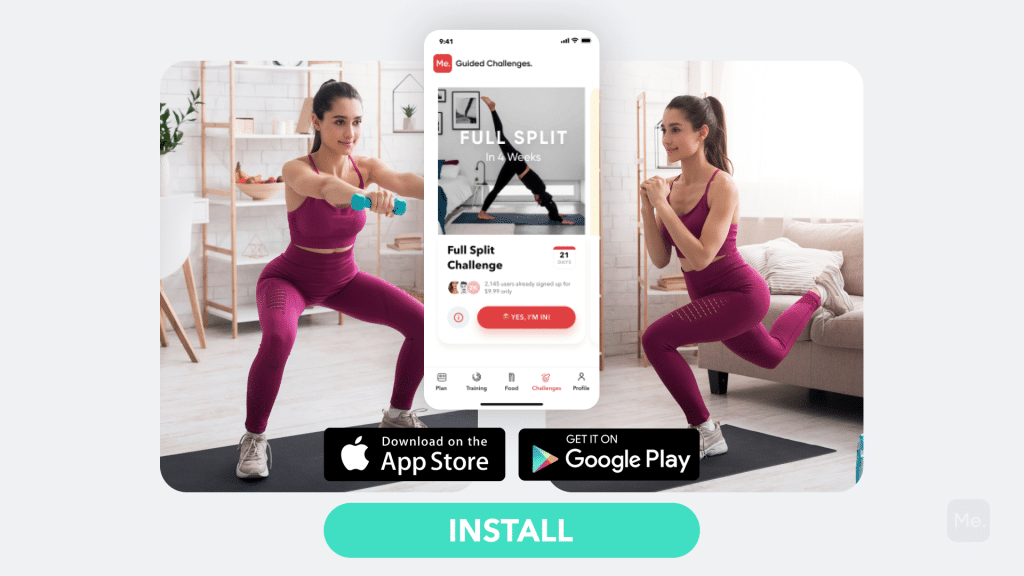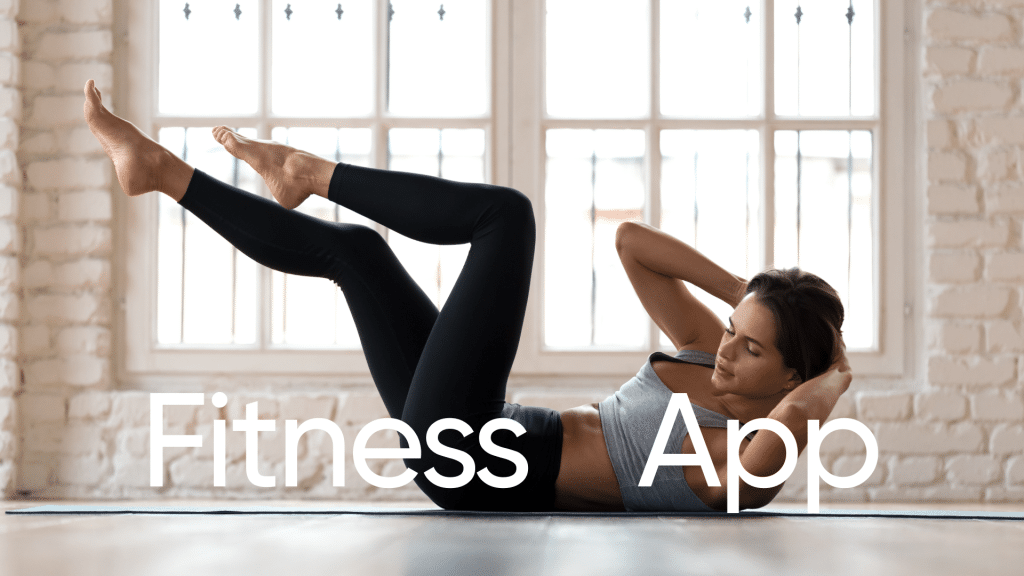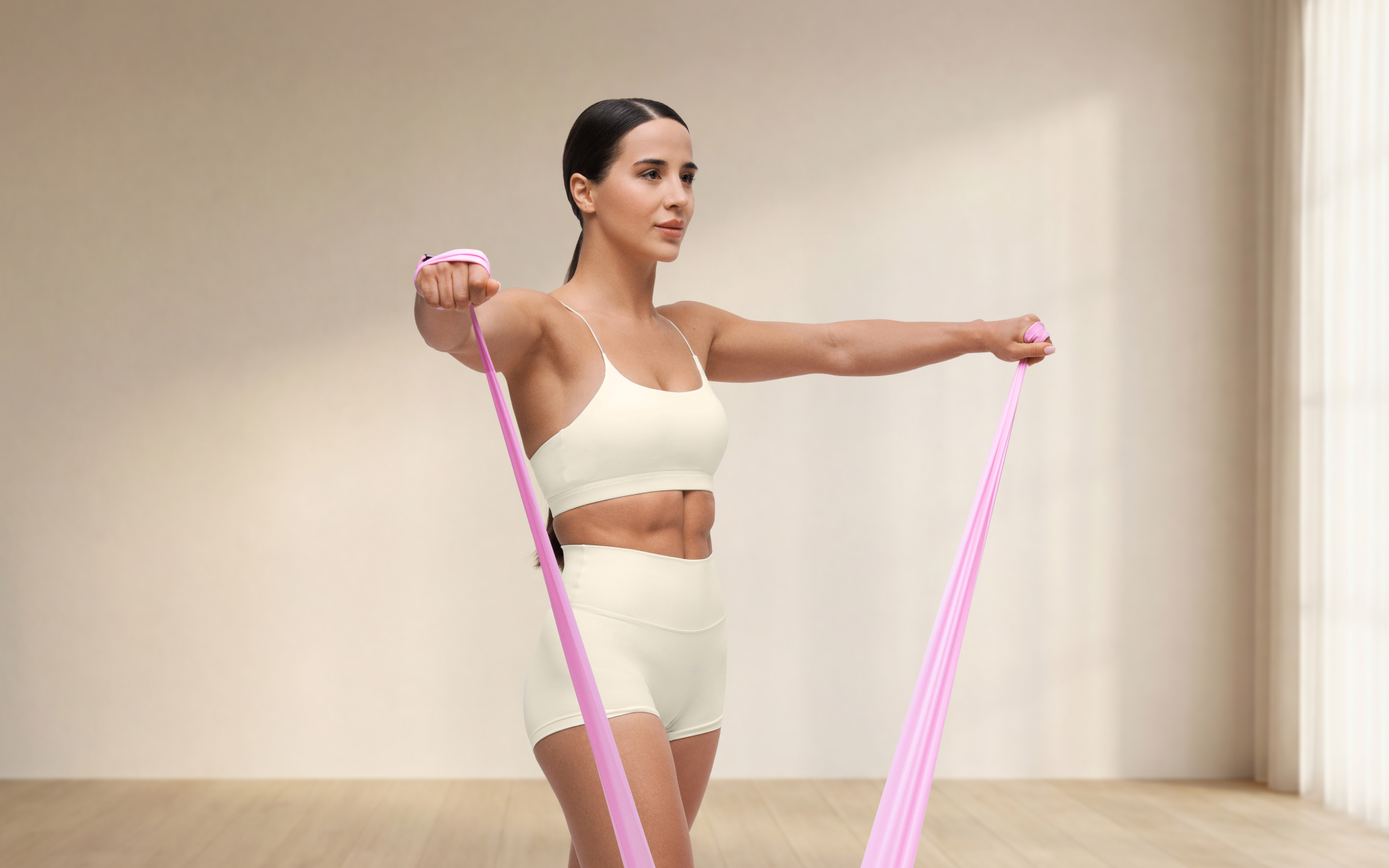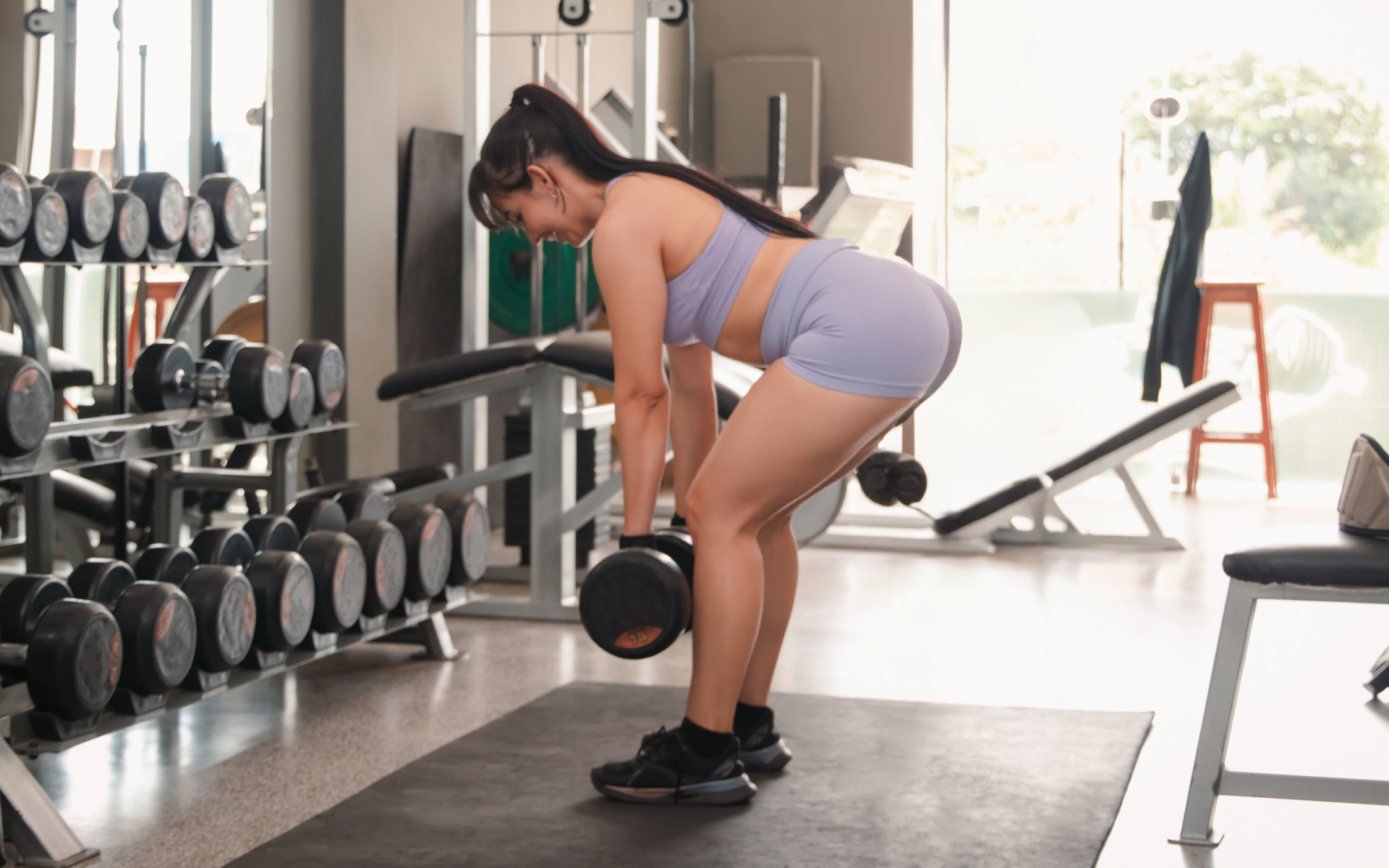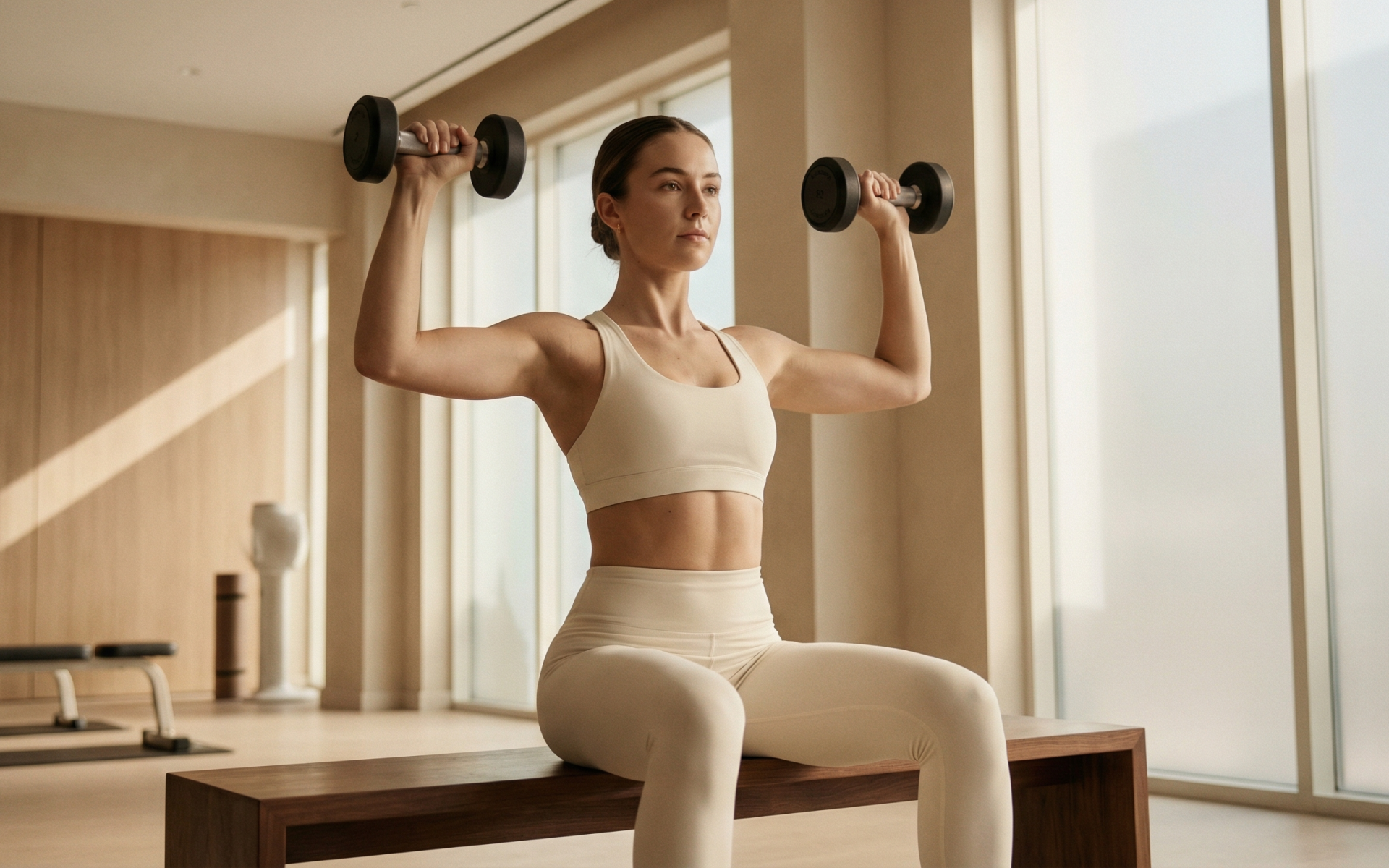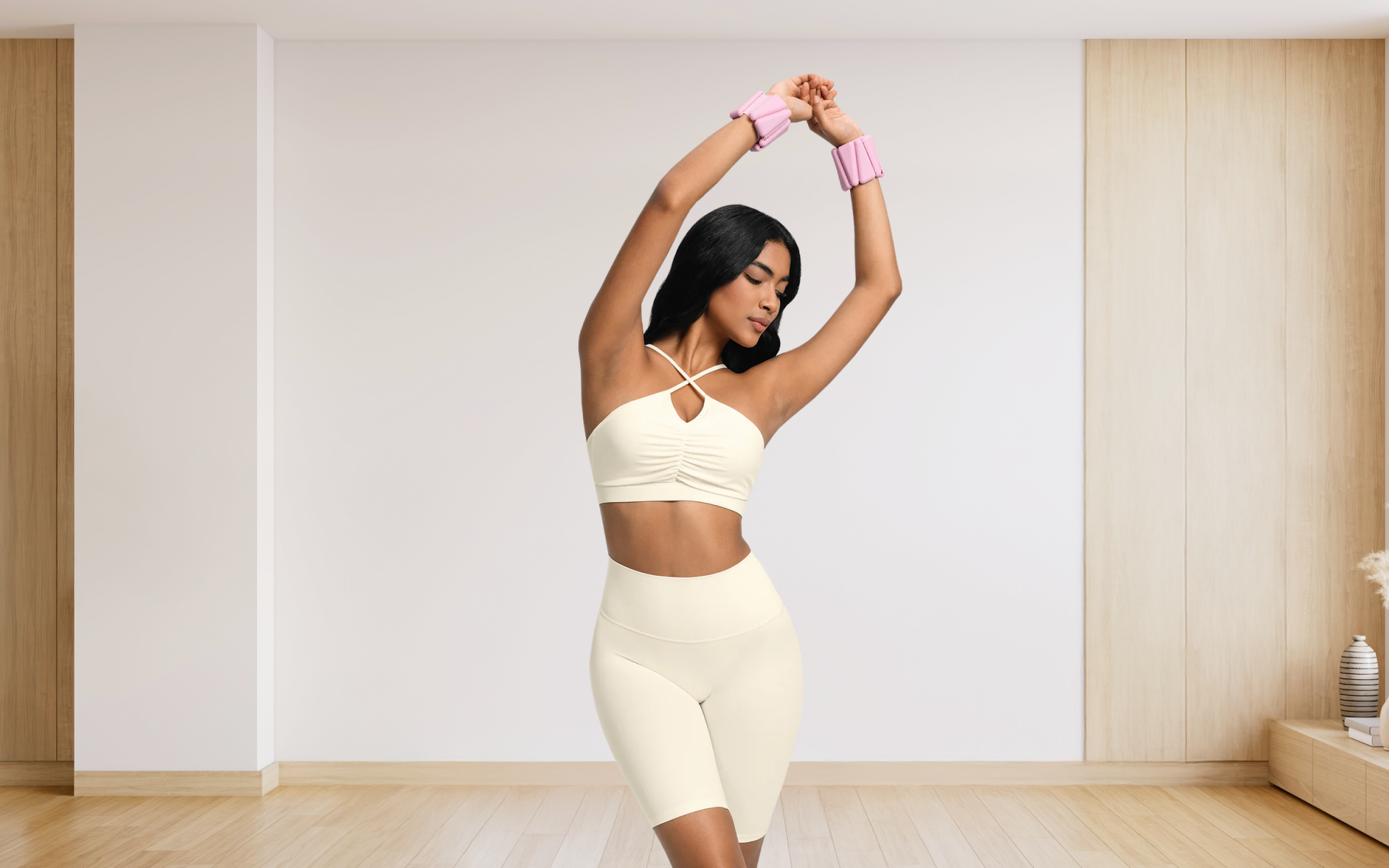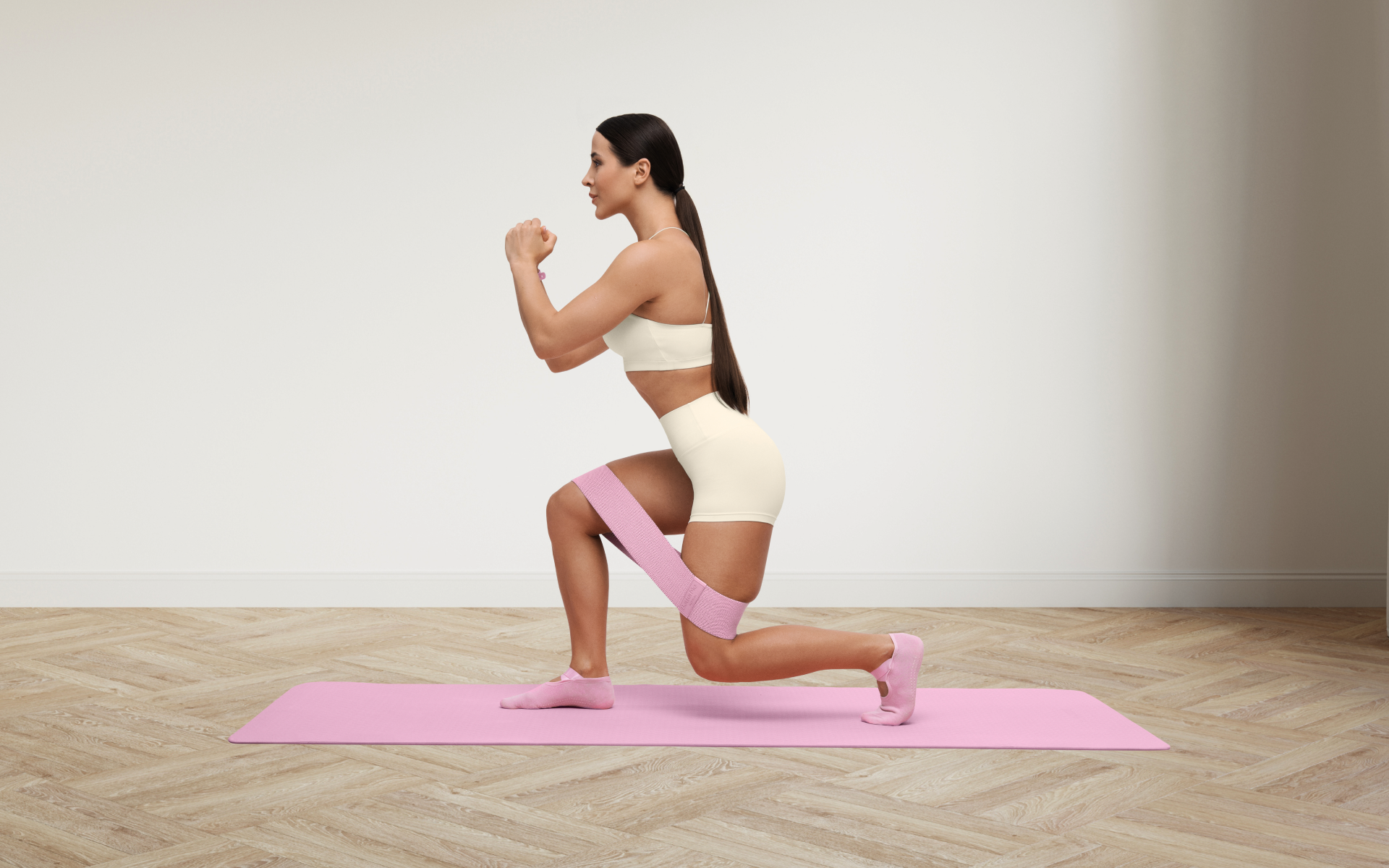When we think about strength training, more often than not we picture an incredibly oiled up muscular person in the gym lifting a heavy barbell stacked with weights. While this is what strength training was originally known for, today this form of exercising goes beyond bodybuilding competitions and is beneficial for other things like weight loss, a leaner more toned figure, improved heart health, reduced belly fat, and much more. Strength training also comes in many forms. A word that you hear thrown around in the fitness community is functional strength training. In today’s article, we shall be taking you through what functional training is, the difference between traditional fitness and functional fitness, how this specific type of exercise can benefit you, plus much more.
Get your personalized
meal plan!
What Is Functional Strength Training?
Functional training is a form of exercise that helps improve your body’s ability to perform everyday tasks and activities. This type of training often uses free weights, compound movements, as well as aerobic exercises that mirror/mimic everyday movements.
Unlike traditional strength training which often requires more explosive movements, the use of complicated gym machinery, and sometimes extremely heavy weights, functional training is more dynamic and more often than not uses full body movements.
For example, when working your legs in traditional fitness, one would perhaps opt to use a leg press, however, in functional fitness you would instead do jump squats as not only do they work your legs but the squatting movement is one that we use in everyday life.
Read More: Which Is Better: Morning Or Evening Workouts?
What Is The Difference Between Strength Training And Functional Training?
In terms of definition, functional fitness is described as a form of exercising that uses body weight as well as simple weights to help you perform everyday movements and activities better. On the other hand, traditional strength training is defined as a form of exercising that isolates muscles and works them to exhaustion using heavy weights and machinery to increase the strength and size of your muscles.
The table below helps highlight the major differences between these two types of training programs:
| Functional Strength Training | Traditional Strength Training |
|---|---|
| Uses full body exercises thus can be used as a full body workout | Isolates of one muscle group and works it to exhaustion |
| Simple but extensive equipment – These exercises only call for bodyweight, resistance bands or simple free weights like dumbbells, kettlebells, medicine balls, etc. | Heavy weights & complicate machinery – These are not always readily available or easy to use for many |
| Uses compound movements that target and combine multiple muscle groups | Uses simple movements that only target one muscle group at a time |
| Low risk of injury – As long as your form is correct, you are highly unlikely to injure yourself | High risk of injury – This is often due to the very heavy weights used. Also because this workout calls for muscle isolation, you might unknowingly overwork a muscle |
If you’ve mustered up the courage to crush your weight loss goal, let Betterme take the sting out of this demanding process. Our app will help you restructure your habits, remold your life and crank up your fitness results!
What Are The Benefits Of Functional Fitness?
Research shows that these types of exercises help with (2, 5, 4, 3):
- Simple everyday activities like carrying groceries, getting up from the floor or bed, standing up, etc
- Improved balance and coordination – This is especially important for older adults
- Injury prevention – With improved balance and coordination comes less risk of falling over and fracturing something. Also, when you strengthen the muscles used in daily life, you lower the risk of sprains when lifting or carrying heavy objects, reaching up a shelf, etc.
- Improved athletic performance – Aerobics and heavy weights aren’t the only things necessary for athleticism. Athletes must also be able to move their bodies fluidly while on the field without pulling a muscle and hurting themselves.
- Very beginner friendly – If you are new to working out functional strength training is much easier to tackle than traditional strength training. Not only are the movements reminiscent of things you do everyday, but the equipment used is also easily accessible and simple to use without hurting yourself.
- Full body workout and time efficient – Due mostly to work schedules, people looking to keep fit or lose weight may find it incredibly difficult to go to the gym. Functional fitness helps solve this problem because:
- Unlike traditional fitness that often calls for split workouts, this one only needs one session to work the whole body and you are done
- Full body workouts are often better for weight loss than isolation workouts as they burn more calories in a much shorter time frame.
Read More: AMRAP Workouts Crossfit Style: Take Your Fitness Game To The Next Level
FAQs
What Exercises Count As Functional Strength Training?
As previously stated, functional fitness exercises not only mimic daily life movements, but they also use large groups of muscles all working together across your body. Some common functional workouts that you can start doing today include
- Bodyweight squats – as well as other squat varieties eg jump squats, sumo squats, etc.
- Jumping jacks
- Walking lunges, lateral lunges
- Push ups and Pull ups
- High planks and other plank varieties
- Burpees
- Inchworms
Is A Bulgarian Split Squat A Functional Strength Training Exercise?
Yes, it is. Like the basic bodyweight squat, the Bulgarian squat is considered a functional strength training exercise. This workout is great for the lower body, especially the glutes and quads. Apart from this, the workout also exercises your core and using weights can also add resistance and work the muscles in your arms. The Bulgarian split squat also improves single-leg strength and power (6).
Reasons why BetterMe is a safe bet: a wide range of calorie-blasting workouts, finger-licking recipes, 24/7 support, challenges that’ll keep you on your best game, and that just scratches the surface! Start using our app and watch the magic happen.
What Is Functional Strength Training On Apple Watch?
This setting is meant to be used when you are doing dynamic strength sequences for either the upper, lower or full body workouts using either your body weight, resistance bands or free weights like kettlebells, dumbbells, or medicine balls (8).
Please note the dynamic strength sequences are exercises that involve the movement of your muscles and joints eg. pushups, deadlifts, bench press, etc.
Can You Build Muscle With Functional Strength Training?
Yes, you can (1, 7). Remember that at the end of the day, functional fitness is still a form of strength training and all strength training exercises lead to muscle growth.
The Bottom Line: Functional Vs Traditional Strength Training – Which Is Better?
This all depends on your goals. As seen while functional fitness can build muscle, it is best suited for daily movements and activities – to help you become stronger, more balanced and coordinated. On the other hand, traditional strength training, while also being a form of functional fitness, is best suited for those who want bigger and more defined muscles.
At the end of the day, both functional and traditional strength training are equally important for overall health and well being.
DISCLAIMER:
This article is intended for general informational purposes only and does not serve to address individual circumstances. It is not a substitute for professional advice or help and should not be relied on for making any kind of decision-making. Any action taken as a direct or indirect result of the information in this article is entirely at your own risk and is your sole responsibility.
BetterMe, its content staff, and its medical advisors accept no responsibility for inaccuracies, errors, misstatements, inconsistencies, or omissions and specifically disclaim any liability, loss or risk, personal, professional or otherwise, which may be incurred as a consequence, directly or indirectly, of the use and/or application of any content.
You should always seek the advice of your physician or other qualified health provider with any questions you may have regarding a medical condition or your specific situation. Never disregard professional medical advice or delay seeking it because of BetterMe content. If you suspect or think you may have a medical emergency, call your doctor.
SOURCES:
- Effect of Functional Resistance Training on Muscular Fitness Outcomes in Young Adults (2010, sciencedirect.com)
- Effect of Functional Training on Physical Fitness Among Athletes: A Systematic Review (2021, frontiersin.org)
- Effects of Functional Strength Training on Functional Movement and Balance in Middle-Aged Adults (2021, researchgate.net)
- Functional Training Induces Greater Variety and Magnitude of Training Improvements than Traditional Resistance Training in Elderly Women (2019, ncbi.nlm.nih.gov)
- FUNCTIONAL VS. STRENGTH TRAINING IN ADULTS: SPECIFIC NEEDS DEFINE THE BEST INTERVENTION (2013, ncbi.nlm.nih.gov)
- How To Do A Bulgarian Split Squat Correctly, According To A Trainer (2022, womenshealthmag.com)
- Systematic review of functional training on muscle strength, physical functioning, and activities of daily living in older adults (2014, eurapa.biomedcentral.com)
- Workout types on Apple Watch (n.d., support.apple.com)
